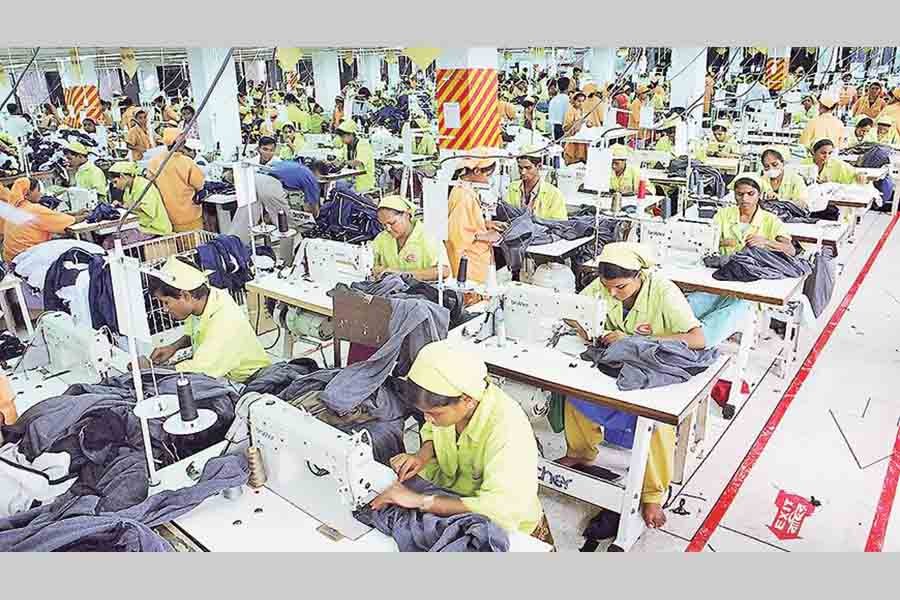The move initiated by the Bangladesh Garment Manufacturers and Exporters' Association (BGMEA) for institutionalising wage board for the garment workers is no tiny blip to be overlooked. It is a major pro-industry move that might bring overall improvement in the work culture of the country's largest manufacturing sector that also fetches most of its foreign exchange earnings through export. Indeed, there were pressures from different quarters. The pressure was in the form of the workers going violent quite frequently, various rights groups from within and outside demanding it for long as part of a package of labour welfare in the country's garment sector.
It has been reported in the media that the BGMEA requested the ministry of labour early this month to form a wage board to review the existing wages of the garment workers in order to reach a consensus on minimum wages. It need not be reiterated that without addressing the wage issue in a sensible manner there are potential risks that might cost the entire industry too dearly. Factory unrest, mainly from demands for wage hike to a reasonable level, has become almost a recurrent phenomenon in the garment sector. Carrying the baggage of cheap labour is no longer a gainful proposition; on the contrary, it is a grim reality that the industry must address as early as possible.
Tracing the incidents of violence and mayhem over wage makes a long list spanning over the past decade. Beside loss of lives and damage to property, the incidents did cast a dark shadow on the growth prospect of the garment industry and there were occasions when the industry faced threats of boycott from some of the major Western buyers, under pressure from the rights groups. The industry didn't experience any noticeable labour unrest during its infancy or in its maturing stage, say a decade back. But as it began to grow meteorically and is still in the process of growth with more than four million workers pushing it up to become the second largest manufacturing hub in the world, there is no way to skirt around the practices that govern labour welfare where wage weighs heavily.
It may be recalled the government way back in December 2013 fixed minimum wages for garment workers at Tk 5,300, but it has been alleged that the amount so fixed had loopholes and some factory owners have been taking advantage of that, much to the misery of the workers. Besides, it is expected that while fixing the minimum wages, the wage structures in other countries, especially those of the competing ones, should also form a basis. Now that the government is to start working on minimum wages, it is important that past mistakes are taken into account so that it is meaningfully done. Consultation with all stakeholders, including the workers' representatives, is crucial to reaching a decision in this regard. For a healthy workplace with well motivated workforce, the prime need is to ensure fair wages, or else the burgeoning industry runs the risk of facing the perils of labour unrest as has been the case for quite sometime now.


